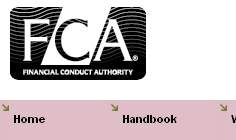
The UK Government has published responses to its consultation held over the transferring of consumer credit regulation from the Office of Fair Trading to the Financial Conduct Authority as of 1 April 2014
A summary of responses has been published by the Department of Business, Innovation and Skills (BIS) and HM Treasury called A new approach to financial regulation: transferring consumer credit regulation to the Financial Conduct Authority. It’s available to read here.
The consultation document outlines the regulatory model and approach to come under the FCA, which has now replaced the Financial Services Authority (FSA), as well as the secondary legislation the Government hopes to pass this year to buttress the changeover.
It also includes the next steps in the transfer of regulation. The legislative framework for the transfer will be made before the summer, Parliamentary scheduling permitting, and firms will be able to register for interim permissions to perpetuate their consumer credit licences from 2 September 2013.
Rule book consultation
The FCA will also enact a consultation over its rule book for consumer credit in the autumn. The collection of more than 100 responses, from both businesses and consumer groups, ran from 6 March to 1 May and was part of the "extensive consultation" regarding the changeover explained by Kirstin Green, deputy director, consumer and competition policy, at BIS. Green explained the subsuming of retail finance, including car finance, into the FCA was preferable to the parliamentary delays and "regulatory instabilities" and "uncertainties" which would occur from running an amended version of the Consumer Credit Act alongside the Financial Services and Markets Act.
How well do you really know your competitors?
Access the most comprehensive Company Profiles on the market, powered by GlobalData. Save hours of research. Gain competitive edge.

Thank you!
Your download email will arrive shortly
Not ready to buy yet? Download a free sample
We are confident about the unique quality of our Company Profiles. However, we want you to make the most beneficial decision for your business, so we offer a free sample that you can download by submitting the below form
By GlobalDataIn an introduction to the publication of responses, the Government said: "The FCA will be better equipped to tackle the consumer detriment and malpractice that has taken place under the current regime with stronger powers and resources to protect consumers and promote effective competition in the consumer credit market."
However, industry body the Finance & Leasing Association (FLA) has warned the expected transfer of regulation to the FCA by April 2014 will present complications for many retail lenders, providing only a narrow window of time to ensure compliance. Stephen Sklaroff, director general of the FLA, said in April: "Anybody involved in the credit market in any capacity should be reading these documents. This is big and happening very soon.
"The Government has said there will be a two-year transition period for the regime, including the authorisation process. The FSA has said that for the first six months nobody will be required to demonstrate they comply with the new rule book, only that they complied with the old rule book. I think we need to push back on both the two-year and six-month periods."
At the end of the consultation period in May, the FSA said it remained "confident" in its timetable for taking on regulation of more than 50,000 companies. It emphasised firms would be able to continue working as before from April 2014 provided they are registered with the regime and that it would work to ensure the change will run "as smooth as possible" for companies.
One of the ‘key themes’ acknowledged by the publication is the challenging pace of change. It states: "The Government holds firm to the principle that a protracted interim period could be detrimental for consumers and unhelpful for firms, and that certain consumer protections should be in place from ‘day one’".
Unintended consequences
Following the concerns expressed by a "significant number" of respondents, the impact assessment presented to Parliament will include "fuller analysis of the risk of market exit and other unintended consequences of the transfer and new cost estimates, drawing directly on evidence provided in responses".
The Government will also allow vehicle leasing brokers within the limited permission regime and changes have been made to allow firms with limited permissions to be appointed representatives, such as a credit broker acting on behalf of a lender, and thus not directly regulated. Also, lenders which do not apply charges or interest may be appointed representatives.
In response to concerns, "prospective appointed representatives will not have to seek full authorisation for all their credit activity at the point of applying for full authorisation… such firms could also request to delay their application for full authorisation in anticipation of the principal becoming authorised."
Regarding insolvency and debt, the Government "has extended the proposed exemption for insolvency practitioners to cover debt advice and associated activity where this is undertaken in anticipation of a formal appointment.
However, where an insolvency practitioner is undertaking regulated credit activities outside his or her formal insolvency practitioner role, he or she will need to seek FCA authorisation.
Other companies
Essentially, regulation of peer-to-peer lending under £25,000 will be "proportionate and consistent" with other consumer finance.
While most responses "supported" the merger of the term ‘broker’ and ‘intermediary’, those concerns over the amalgamation will be addressed in statutory instruments.
The tapered definition of credit reference agencies as simply those providing credit references met "no objections".
Despite the concerns of consumer groups and charities, the Government said it had not seen sufficient evidence to expand regulatory activity of debt management lead generators.
Interim permissions, responses by ‘numbers‘
"Only one or two" respondents asked for a ‘grandfathering’ period under the new regime, while "some" were concerned about costs and burdens to acquire full authorisation within two years.`
However, "many" felt the interim period was too short for the FCA to process all authorisations.
richard.brown@timetric.com







